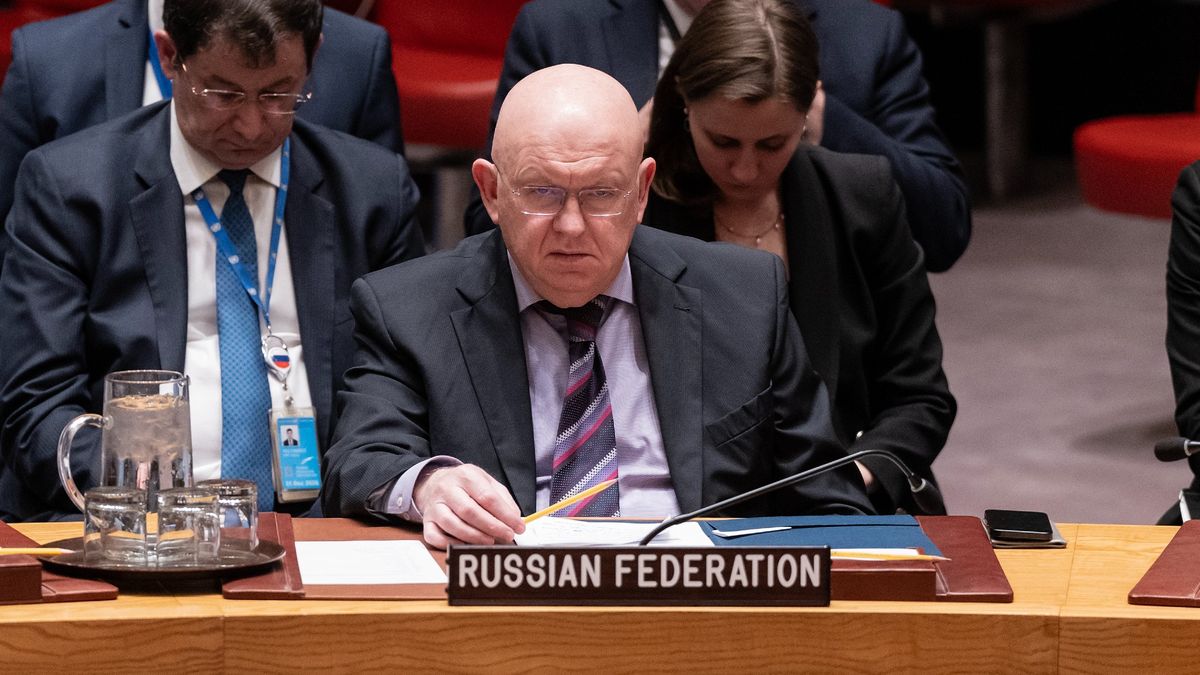Russia Blocks UN Resolution Aimed at Preventing Nuclear Arms Race in Space
Russia recently exercised its veto power to block a United Nations resolution that sought to prevent a nuclear arms race in space. The resolution, co-sponsored by the United States and Japan, urged all nations to refrain from deploying nuclear arms in outer space.
The move comes in response to reports indicating that Russia is in the process of developing a nuclear anti-satellite weapon. This development prompted the White House to reassure the public that the alleged weapon does not pose an immediate threat to anyone’s safety.
Despite support from thirteen nations, including the United States, Russia was the sole vote against the resolution, with China abstaining from the vote. Russia’s ambassador to the U.N., Vassily Nebenzia, criticized the resolution, labeling it a “dirty spectacle” and a “cynical ploy,” according to the Associated Press.
US Ambassador Questions Russia’s Motives
Following Russia’s veto, U.S. Ambassador to the U.N., Linda Thomas-Greenfield, expressed skepticism regarding Russia’s decision, questioning why a nation ostensibly compliant with international rules would oppose a resolution reiterating these rules.
Thomas-Greenfield posited, “Today’s veto begs the question: Why? Why, if you are following the rules, would you not support a resolution that reaffirms them? What could you possibly be hiding?”
Proposed Amendment and Response
Despite rejecting the initial resolution and abstaining from the vote, Russia and China jointly proposed an amendment. The amendment urged all nations to “prevent for all time the placement of weapons in outer space and the threat of force in outer space.”
With a tie in votes for and against the proposed amendment, and one abstention, the resolution failed to pass. Notably, the United States was among the countries voting against the amendment.
Nebenzia, in response to U.S. criticism, advocated for a comprehensive ban on all types of weapons in space, not limited to weapons of mass destruction. He questioned why the U.S. opposed this broader ban.
Military Developments in Space
The U.S. military has shown interest in expanding its military capabilities in space. Initiatives such as the Defense Advanced Research Projects Agency (DARPA) seeking space superiority and the activation of a dedicated unit in the U.S. Space Force for targeting adversary satellites indicate a focus on enhancing defensive and offensive capabilities in space.
Similarly, Russia has demonstrated advancements in space-based technologies, with actions such as the deployment of additional objects into orbit by the satellite Cosmos 2543. These activities align with Russia’s military doctrine, which emphasizes the use of space-based systems to counter U.S. and allied assets.
Notably, Russia has also issued warnings against Western commercial satellites, considering them legitimate targets for military actions.
Image/Photo credit: source url





